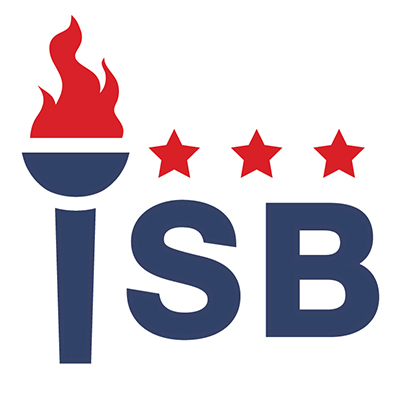Interactive Seminar by Dr. Tania Israel, Karpeles Manuscript Library, June 25,2017
By RC, ISB Staff Writer
 Approximately three-dozen participants attended this excellent combination presentation, seminar, and workshop on one of the most pressing issues today. With daily news topics seemingly lit in flashing neon by inflamed speakers and incoherent tweets, it’s often difficult to agree on what are “the most pressing issues.” But there is collective dismay across the American political spectrum at the polarization of partisan discussions. If there is middle ground, no one is standing on it. Tribalism is the new buzzword.
Approximately three-dozen participants attended this excellent combination presentation, seminar, and workshop on one of the most pressing issues today. With daily news topics seemingly lit in flashing neon by inflamed speakers and incoherent tweets, it’s often difficult to agree on what are “the most pressing issues.” But there is collective dismay across the American political spectrum at the polarization of partisan discussions. If there is middle ground, no one is standing on it. Tribalism is the new buzzword.
In her gentle introduction to this potentially difficult topic, Professor Israel began by listing simple guidelines for the day: mutual respect, confidentiality and speaking from one’s own experience. To answer the basic questions, “Why would I want to engage in dialogue?” and “What gets in the way of dialogue?” she led a brief discussion based on audience responses. It was a good way to prime the participation pump. Some of the points made by attendees were, “Emotions get in the way of dialogue,” “Avoidance of confrontation is a barrier,” and “Some discussions are a competition to win.”
Posed questions were also part of the plan. “Does not arguing a point mean I accept the other argument?” “What outcomes am I seeking?” “Whom do I imagine I’m talking with?” “Do I have the skills to listen effectively?” This last question prompted reference to Covey’s popular (25 million copies) 1989 book, “The 7 Habits of Highly Effective People.” Covey stated most people do not listen with the intent to understand; they listen with the intent to reply.
Active listening tips included
• face the speaker at an appropriate distance with an open stance
• maintain eye contact
• encourage the speaker with gestures and acknowledgements
• allow the speaker to make points uninterrupted
• remember “silent” is an anagram for “listen”
• reflect on and capsulize speaker’s points with simple nuggets
• ask open-ended questions
• focus on a single thing at a time
• use questions to encourage elaboration, not to challenge the speaker
With some of the general skills and techniques covered, the group moved to “Perspective-Taking” fun where everyone got to rant & rave about a pet peeve, step into the shoes of someone else, advocate their perspective and share insights from the activity.
At the end everyone received a useful flowchart on the process plus online references for those who want more information.

